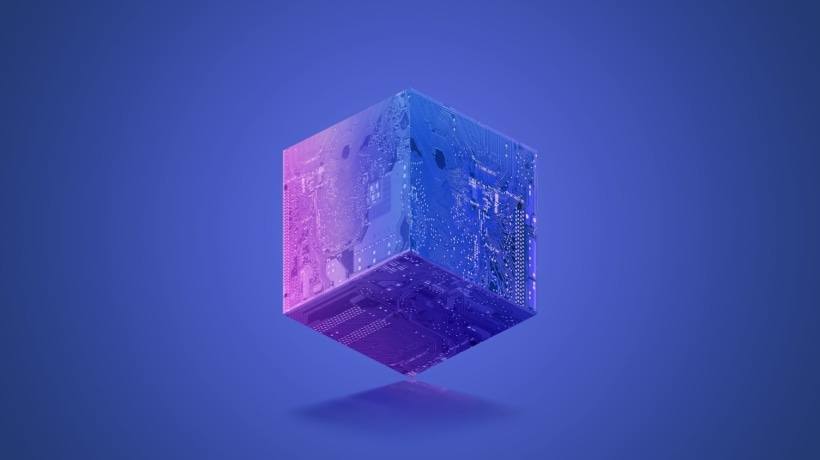Blockchain Development For Education
Like other fast-growing technologies such as Artificial Intelligence (AI) and Virtual Reality (VR), blockchain is also transforming the field of education. It is bringing new ideas and solutions from different fields, going far beyond just money and crypto assets. The old method of checking credentials, academic records, and transcripts was unclear and made education development difficult. However, blockchain-based software developed by a reliable blockchain development company for education can easily fix these problems.
The biggest advantage of blockchain is that it stores information in a decentralized manner; once the information is available, it cannot be changed, you can keep track of everything, and it all happens in the open. The improvements that blockchain is bringing to the education sector can really open doors for people everywhere, no matter where they are from.
These features are definitely good because they can be used in many ways in education. Many public schools are now considering using blockchain tools. If you work with schools, knowing this can perhaps help you suggest ways to improve the system. This article will give you a clearer idea the advantages of using blockchain development for education and what kind of challenges might be faced.
Key Use Cases Of Blockchain In Education
Blockchains are great because they can create unique digital objects that prove your degrees and certificates are legitimate. But it's not just about verifying certificates; blockchains can do many other things in different fields. Let's look at some real-world examples:
1. Financing Education
Financial accounting is very important in schools and blockchain technology can be used in some new ways in education. For example, blockchain can help manage teacher salaries and student scholarships, making the entire system of funding grants and projects more open and fair.
2. Record-Keeping
It seems that blockchain development for education could finally solve some of the long-standing problems with our record-keeping methods which have not always been the most reliable. A lot of school documents, such as diplomas and certificates that would normally require someone to check, can be automatically verified and stored securely using blockchain. Once certain conditions are met, smart contracts on the blockchain can take over and approve documents instantly without anyone needing to do so manually.
This means students can access their records quickly and easily share them with potential employers. Moreover, it makes things easier for employers since they don't have to spend time conducting tedious background checks to ensure that someone's qualifications are genuine. The good thing is that no matter what external problems may arise, this information remains safe.
3. E-Transcripts
In addition to making verification easier, blockchain also opens up the great possibility of digital transcripts (e-transcripts). Creating transcripts is one of the most time-consuming and labor-intensive tasks for schools everywhere.
Right now, someone has to manually check every single grade on a transcript to make sure it's correct. This involves looking at each case separately and handling tons of paperwork from high school to college. Believe it or not, most schools today still use the old method of sending transcripts back and forth. But, using blockchain and similar technology could really speed up these processes as well as help reduce fraudulent claims for educational credits that people haven't actually earned.
Blockchain in education can certainly do great things for schools, as it allows schools to store important information, such as individual student grades, in a way that cannot be tampered with. This not only helps schools but also makes it easier for recruiters and staffing companies to vet people.
4. Decentralization Of The Institution
Because blockchain has so much potential, it could become much more than a tool for universities. It could actually create a new way of working. By using smart contracts to handle agreements and payments between students and teachers automatically, this technology can support online courses. This means students can get more affordable tuition and reliable service. Additionally, automation relieves teachers of a lot of administrative tasks, keeps faculty and student information safe from hackers using blockchain security, and reduces administrative costs by eliminating the role of middlemen.
5. Copyright Protection
Plagiarism is really a big problem in the world of education. When someone copies or steals a research paper, it means a lifetime of hard work goes to waste. Even stealing parts of an assignment can result in poor grades. But, blockchain-based solutions could help govern the way copyrighted content is shared online.
The main idea is that this technology can store data securely in a kind of chain. Once it's there, you can't change it because it's protected by some serious encryption. This means that students can access learning materials securely. The owner of the content can easily control who sees it because how it is used is also tracked in the chain. You can see online who is using it, and proving who owns it becomes very simple.
Challenges Of Adopting Blockchain Technology In Education
Although blockchain has many good aspects, it can be hard to convince people to actually use it. Some teachers and students are a little unsure about adopting this new technology, perhaps because they are worried about how it will actually work, such as whether it is safe and how much it will cost. Let's take a look at some of the challenges that they have to face:
Security Issues
We all know blockchain is thought to be extremely secure; it is not totally safe. Money and education are two completely different things, so security rules need to be appropriate for both. As vulnerable as blockchain currency can sometimes be, the exact same technology may not be effective for keeping education information secure.
Student records and qualifications are sensitive items and must be stored in compliance with state and national privacy laws. Therefore, it is very important for schools to be extra careful about this information and how they store it. They should probably add additional security steps, such as setting permissions and using stronger data encryption, to be even more secure.
Scalability Concerns
The amount of student data and number of certificates is constantly growing. This makes it difficult for schools to increase blockchain capabilities as their needs grow. It's like shopping online: the more information there is, the more blocks are added, which can slow down the blockchain. Also, having everyone verify things peer-to-peer can make the whole process take longer.
Low Adoption Rate
At the moment, the good thing about blockchain in education is that it helps a small group of students, mainly those who are graduating, and can store their achievements and awards in it. Schools that want to use blockchain technology to make hiring easier will have to invest in it themselves. This will mean additional costs for businesses, which may not make sense or even be worth it for some.
Cost
Running blockchain at scale is a major undertaking even though it will ultimately save money on administrative responsibilities in education. It is going to be quite expensive, of course. While some schools may find it difficult to spend such a large sum of money, others may find it difficult to implement blockchain since this would mean making extensive changes to their current systems. Essentially, the complete digital transformation of blockchain in education will require a massive initial investment which might scare schools away from using it.
Conclusion
Blockchain technology has become a real game changer transforming education everywhere. By making education processes more secure and open, blockchain is going to change the way we teach and learn and make sure that our degrees and certifications are real. From automating administrative tasks to helping us learn throughout our lives and proving the validity of certificates, blockchain is opening up a ton of new possibilities for schools and students. So, to see what blockchain can do for education, it is important to engage with new ideas, work together, and be flexible. This way we can make the most of this fantastic new technology.









